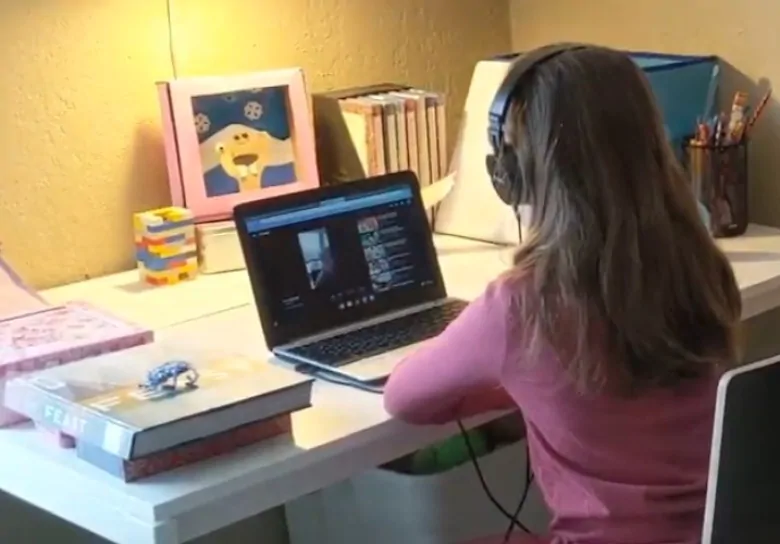As Canadian parents and guardians face the stark reality of ongoing school closures this spring because of COVID-19, an uneven patchwork of provincial plans has developed to try to implement remote learning for a vast range of students.

As Canadian parents and guardians face the stark reality of ongoing school closures this spring because of COVID-19, an uneven patchwork of provincial plans has developed to try to implement remote learning for a vast range of students.
When Alberta announced that its schools would close indefinitely in an attempt to slow the spread of COVID-19, Danielle Fortin admits she considered the decision “pretty drastic.”
Now, with Canada’s coronavirus cases having risen dramatically, the Red Deer, Alta.-based mother of two appreciates that decision — along with the speed with which her province enacted a “learning at home” framework.
“Now that we’re in it” and seeing that physical isolation measures are likely to continue further into the spring, “it makes a lot of sense,” said Fortin, whose kids, ages eight and 11, are tapping into online resources and connecting with others via video chat.
“It’s going to take a lot of time for families and kids and parents to adjust to this really weird new normal we have going on,” said Fortin, who added that “it wouldn’t make sense to rush back.”

Just a few provinces over, however, Janet Chisholm has been frustrated with what she sees as Ontario’s slow progress at implementing its own plan for at-home learning.
Ontario, which includes the largest school board in Canada (the Toronto District School Board), broke down details of its learning-at-home plan on Tuesday — “but I think it’s a bit late,” said Chisholm.
Ontario Education Minister Stephen Lecce “used the phrase ‘lightning speed’ twice and I would say we’ve been off school for awhile now. I wouldn’t describe the response as lightning speed…. We’ve been having to teach our kids or manage on our own for the last week and a half already.”
An earlier learning portal Ontario set up was not what the mom of two, whose kids are eight and 10, had expected. Chisholm called it “a non-plan” that simply listed online links and “didn’t do a very good job of giving us guidance on how to be teachers.
“We’re not educators and we shouldn’t be expected to earn a degree in teaching overnight and try to develop curriculum on our own.”

While the downtown Toronto resident acknowledges the prudence of Ontario extending its public school closures for at least another month, “we’d love to see our kids back to school May 4,” she said.
“I know other provinces have already pulled the plug on the year and I think I’d be disappointed if they did that.”
While some provincial governments have cancelled in-class learning indefinitely, others are taking more of a wait-and-see approach and thus far keeping school doors shuttered into May.
Some provinces have issued specific objectives (including deliveri

